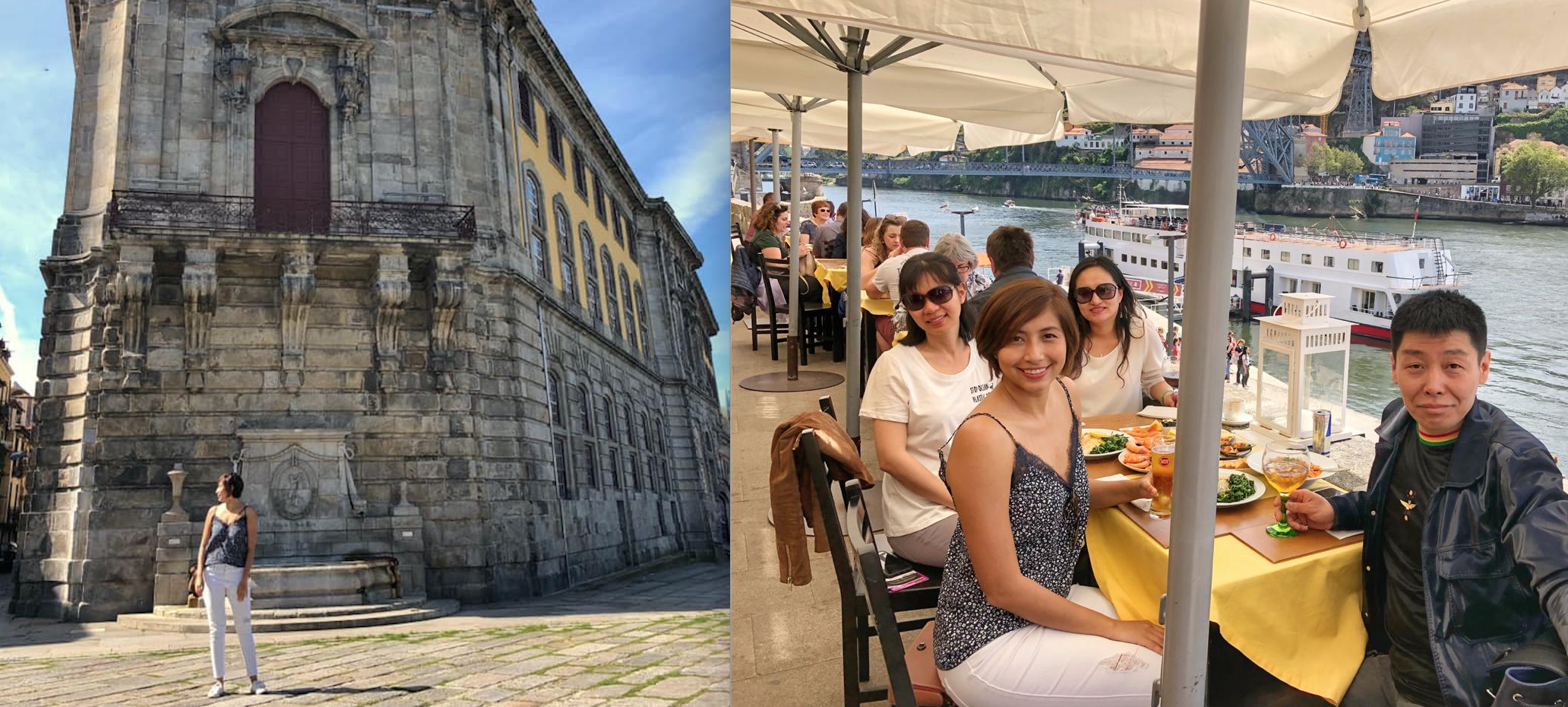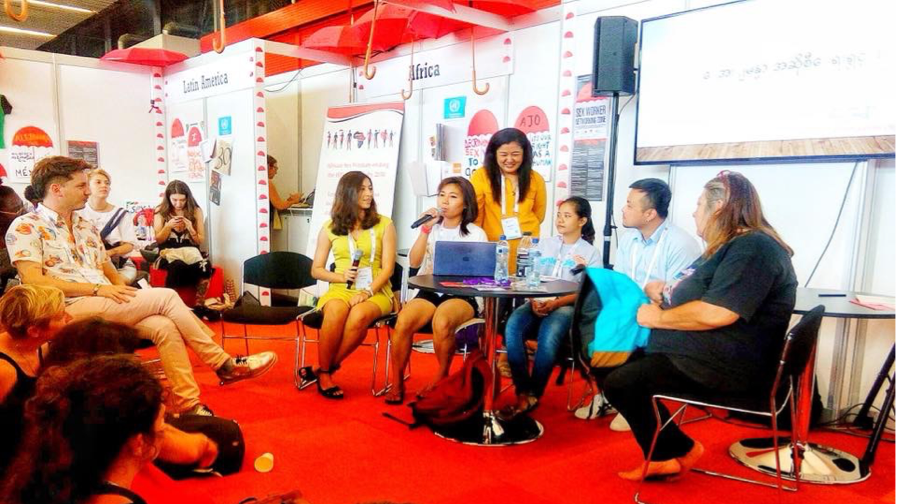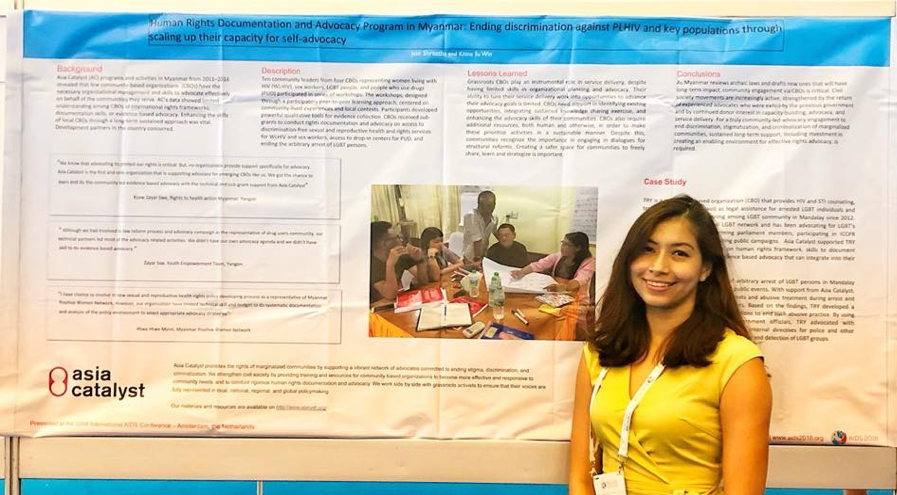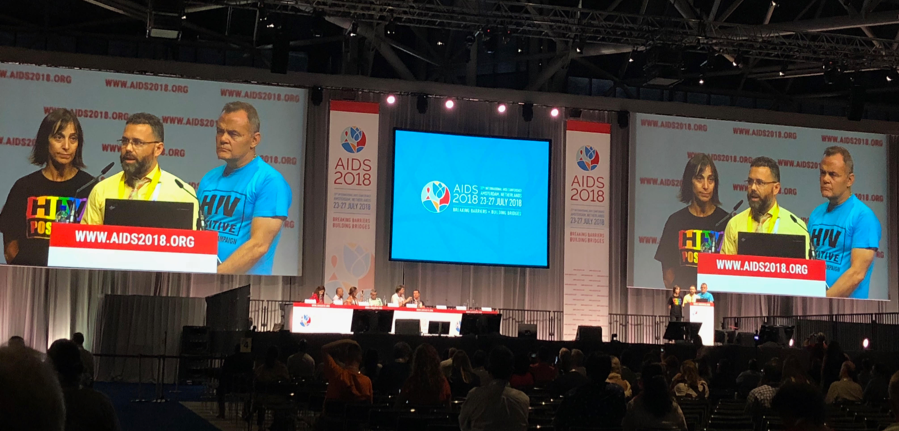For International Women’s Day, Asia Catalyst caught up with Leta Hong Fincher, who just released Betraying Big Brother, about the burgeoning feminist movement in China.
We asked her how activists have, against the odds, sparked a mainstream movement. She explains what women are fighting for in China today, and how, under the current government crackdown, the research she did just a few years ago would be almost impossible.
Leta gave a great interview. You can buy her book here – and support Asia Catalyst as we launch our 2019 programs for women living with HIV, trans women, sex workers, and others by clicking here.
Here’s to all the bold inspiring women out there! Let your power shine this month!
What made you write this book?
I knew one of the Feminist Five before they were jailed. I’d met her in 2013 through Feminist Voices, this website that ended up being banned last year. I was really worried when the five women were jailed.
When the authorities released the women after a few months, and they were on de facto house arrest, I did my first interview in November 2015. Then I went to the different cities where they were and ended up interviewing all of the Feminist Five and a whole bunch of other feminist activists. I thought their stories were so important and they were being erased.
How did you come up with the name Betraying Big Brother?
One of the Feminist Five, Wei Tingting, wrote a brief online account of her experiences the first day she was arrested. Security agents confiscated her glasses and she couldn’t see anything… she’s basically blind without her glasses. They confiscated her glasses and coat and snow boots. There was no heat in the middle of winter and it was below freezing. She describes being overcome by the feeling of terror and disorientation.
Then she put her ear up against the wall of the cell and started to hear the voices of some of her feminist sisters through the walls. So she yelled out to them, and started singing, and one of them started singing back…. Imagine these women singing to each other and letting each other know they were all in there together. She regained her sense of hope and defiance. And she describes that feeling as “the joy of betraying big brother.”
What are the biggest issues for women in China today?
These activists have been active for years, standing in the subway in Shanghai saying “I should be able to wear what I want but you can’t harass me.” Walking down the streets in Beijing wearing white wedding gowns covered in fake red blood to draw attention to intimate partner violence. Conceiving of “Occupy Men’s Toilets” to draw attention to the fact there are never enough women’s toilets.
Sexual harassment and sexual violence have been a big theme. That’s why the Feminist Five were arrested: they were planning to hand out anti-sexual harassment stickers on subways and busses.
If you look at what’s happening today, there’s a lot of ordinary women starting to speak out about sexual harassment and rape. It’s China’s version of the #MeToo movement.
You spoke about the one-child policy. On the face of it, that seems positive giving freedom back to women – but there’s this been pressure going the other way now?
I’ve been writing about this for years, the government pushing single, educated women to get married. It started a propaganda campaign using the term “leftover women” to describe single women in their mid-20s or older… trying to shame or stigmatize or insult them into getting married.
Even before the government adopted its official two-child policy, you see this intensification of propaganda pushing women into having two children instead of one. It’s a 180-degree turnaround from the previous 35 years.
This is not about giving women freedom to make choices about how many children they have, warning educated Chinese women that they need to hurry up and get married and have two children before 30. Telling them that, after 30, you’re much more likely to have birth defects.
Also, there is an increase in gender discrimination. A lot of employers blatantly advertise they’re not looking for women, only men. If they agree to interview women, they ask young women, “Are you married? Have you had a child? When are you having your first child? When are you having your second child?” Employers don’t want to have to deal with maternity leave. There are a lot of cases where pregnant women are either fired or pushed out.
There is also increasing gender discrimination for women for applying to university programs: they make the women score higher than men to admit them.
You say that the feminists represent a threat to the regime. Can you explain?
It’s not that the feminists themselves want to threaten the party in any way; they don’t. They’re not overtly criticizing the Communist Party in any way, that’s why it was such a shock when the Feminist Five were arrested and jailed in 2015.
The party itself views young women as a threat for many reasons. One is that they’re organized. They’re in a lot of cities across China. They have popular messages that resonate with so many women across China, especially women who’ve gone to college. But high school girls are also starting to speak out more about gender equality.
The Communist Party at the elite level is entirely men. The propaganda today is aggressively pushing traditional gender norms. The man is supposed to be the head of the household and in charge of making money. And the woman is supposed to be the dutiful wife and mother. The propaganda also shows Xi Jinping, the Chinese president, as being a hyper masculine strong man ruling over all these male-dominated families. State media emphasizes that everybody needs to play “their proper role” in the family hierarchy.
The message of the feminists is the complete opposite. Young women don’t want to just get married and have babies. They want to have careers. They have dreams. They may want to further their education. They may want to go or work abroad. They don’t want to just be a reproductive tool for the state.
And the backdrop is a demographic situation of dramatically falling birth rates in China, a severely aging population, and a shrinking workforce. The Communist Party thinks these trends are a threat to its survival.
It doesn’t make any sense economically if you look at the importance of working women. China’s neighbors, like Japan and South Korea – those countries are grappling with similar demographic problems, but they’re not responding the same way. They’re trying to come up with ways to boost women’s participation in the workforce. But the Chinese government is the opposite. It sees the subjugation of women as critical to its own political survival.
What it is like to be a women’s activist in China today? How is it different from Japan or South Korea, or here in the States?
It’s very, very difficult. China is an incredibly hostile environment for social movement organizing of any kind. A lot of these feminist activists are persecuted regularly. There are some who are in detention today, who used feminism to call for more rights for workers. There are quite a lot in detention today and we don’t know where they are.
Other activists are routinely being harassed by security agents or police, who may come to their door and interrogate them. The police often go to the landlords of the activists and say, “you have to stop renting your apartment to those troublemaking women.” Then landlords will be forced to kick out their tenants, so a lot of these activists have to keep moving around.
They also pressure the parents and relatives of young activists to “keep their daughters in line,” “tell their daughters to stop making trouble because you’re making my life as a parent difficult.” That’s one of the most insidious forms of control.
What else?
The logistical difficulty – if you’re an ordinary woman and you want to write something on social media about your experience with sexual harassment – it’s often censored and deleted. It’s very hard for most women to go to a news outlet and have her story written up.
Because there’s no independent media in China; it’s fundamentally all controlled by the state.
You’d think in an environment that hostile, it would be impossible to get a women’s rights movement going and keep it alive. But here we are, almost four years since the jailing of the Feminist Five, and the women’s rights movement is still alive. It has not been crushed. That alone is a testament to the courage and the resilience of these young feminist activists.
Women’s rights activists have joined forces with workers, and quite a few prominent activists are queer. That’s another reason the women’s movement is perceived to be a threat.
You’ve gotten shout-outs from Time Magazine, Vanity Fair, the BBC on this book. What do you hope people will take away from it?
For people who don’t know China, I hope they can still read the book and be really inspired. Because we’re at a critical moment in world history. In the United States, our democratic institutions are coming under unprecedented assault, so we have our own battle to fight in the US to preserve our democracy. And the US president has emboldened dictators around the world; he openly admires these dictators, praises them.
There’s a rise in authoritarianism around the world. The United States is no longer playing the moral leadership role, so it’s very easy for these other dictators – China and Xi Jinping and Russia and Vladimir Putin – to step in and increase their authoritarian power. You see that in so many countries around the world. It’s a very dangerous time.
One of the ways we can learn from China is that, even though China is the most powerful authoritarian regime and the second largest economy in the world… even in China, there are these young women starting a movement that is confounding authoritarian leadership.
It’s very difficult for China’s rulers to figure out how to quash the movement. There’s a lot of promise and a lot of lessons to be learned.
I think feminism is very important in fighting authoritarianism. You see it in China because feminism resonates with millions of women. Their daily lives are affected by all these problems – gender discrimination, sexual violence. A key to fighting the rise of authoritarianism globally is supporting grassroots activists, supporting gender equality, supporting women’s rights, supporting women’s political participation. Not enough people recognize that link.















